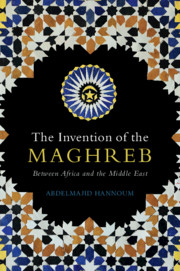Crossref Citations
This Book has been
cited by the following publications. This list is generated based on data provided by Crossref.
Ben Yakoub, Joachim
Boustani-Dahan, Kaoutar
Kolly, Maryam
and
Hmouda, Samira
2022.
Are we Europe?.
p.
249.
Gross-Wyrtzen, Leslie
2023.
‘There is no race here’: on blackness, slavery, and disavowal in North Africa and North African studies.
The Journal of North African Studies,
Vol. 28,
Issue. 3,
p.
635.
Buehler, Matt
Fabbe, Kristin E.
and
Kyrkopoulou, Eleni
2023.
Surveying the Landscape of Labor Market Threat Perceptions from Migration: Evidence from Attitudes toward Sub-Saharan African Migrants in Morocco.
ILR Review,
Vol. 76,
Issue. 4,
p.
748.
Terhmina, Imane
2024.
Genealogies of (anti-)Blackness in the Maghreb: Africanity, Arabness, and the French colonial legacy.
Contemporary French Civilization,
Vol. 49,
Issue. 3,
p.
189.
Parikh, Shreya
2024.
Within and Outside the Black-Maghrebi Binary.
Meridians,
Vol. 23,
Issue. 2,
p.
490.
Bachelet, Sébastien
and
Palladino, Mariangela
2024.
‘
Être
vraiment vrai’: truth, in/visibility and migration in Morocco
.
Identities,
Vol. 31,
Issue. 3,
p.
313.
Crucifix, Edwige
2024.
Tracing the Desert Island: Atlantis, Unknowability, and Colonial Imagination.
Contemporary French and Francophone Studies,
Vol. 28,
Issue. 5,
p.
811.
McManus, Anne-Marie
2024.
Race, Time, and the Petrified Subject in Algeria.
Comparative Studies of South Asia, Africa and the Middle East,
Vol. 44,
Issue. 2,
p.
287.



